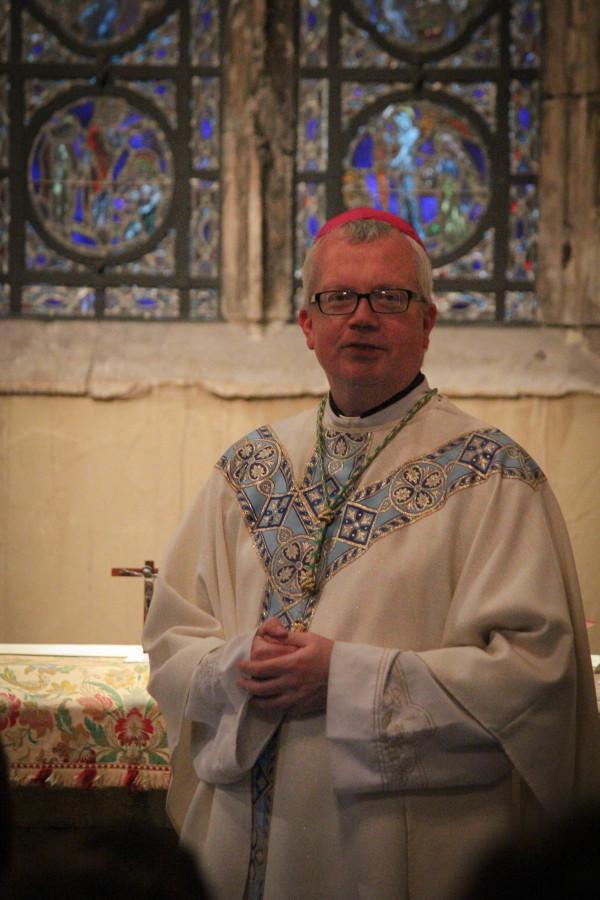Retired Catholic Bishop Thomas Gumbleton is known to be a controversial figure in the church, and he showed why he has earned the reputation during a lecture hosted by the Faber Center for Ignatian Spirituality at Marquette last Thursday.
Following the former auxiliary bishop of Detroit’s presentation, “Justice in the Church and Society,” a man from the large audience in the Weasler Auditorium approached the microphone and raised the issue of clergy sexual abuse.
The man thanked Gumbleton for meeting with him three years ago at a sexual abuse conference and said that a priest abused him as a child. He said he was grateful for Gumbleton’s openness and responsiveness to abuse victims, then asked for Gumbleton’s perspective on the problem.
Gumbleton had strong words for church hierarchy in general.
“Bishops are unwilling to take full responsibility and are not being held fully accountable,” he said. “The church has failed to step up to the challenge.”
“Priests must step up and say, ‘Yes, I did it and I’m sorry,’ but this doesn’t happen,” Gumbleton added. “I can’t think of one case where this has happened.”
Gumbleton said because of the legality of the issue, the victims become seen as enemies rather than victims who should be apologized to and served.
Mike Hogan, director of the Faber Center, invited Gumbleton to give the annual lecture, saying in an introduction that Gumbleton “exemplifies the nation’s ideals.”
Gumbleton’s credentials include a doctorate in canon law and countless honorary degrees. He is also the former president of Bread for the World and founding bishop president of Pax Christi.
During the presentation, Gumbleton joked to students, faculty and other audience members that he is often “suspicious” when people ask him to give talks because he’s often labeled a “liberal bishop.”
He mainly spoke during the program about economic justice.
Gumbleton described his two trips to Haiti in the past month, saying that the poverty and desperation in Haiti was “overwhelming.”
The problem, he said, is that one-fifth of the world controls 87 percent of the world’s wealth.
This “structural social injustice” has resulted in suffering many in the U.S. could not imagine, Gumbleton said.
“No one has a right to what is beyond their need,” he said.
Gumbleton said he understands the idea of redistribution of wealth receives harsh criticism, as the rhetoric is associated with socialism and contradicts our idea of economic freedom.
“The situation of the people of Haiti is so degrading you cannot call it human,” he said. “We need to begin to share our wealth, but that’s not enough. Justice would be assuring that everyone has access to the same opportunities.”
Brian Anderson, O’Donnell Hall minister and the university’s coordinator of alcohol programs, said he was struck by Gumbleton’s message that one should only own what they need.
“It made me rethink some of the stuff I own and say, ‘Gee, do I really need this when I could get it at a common shared source like a library?’” Anderson said. “It really is a challenging concept.”
The Faber Center for Ignatian Spirituality states its mission is to “call us to the service of faith through the promotion of justice.” The center hosts a series of retreats and reflection groups dedicated to promoting spirituality for faculty, staff and administrators. It was adopted as a ministry in 2005.



